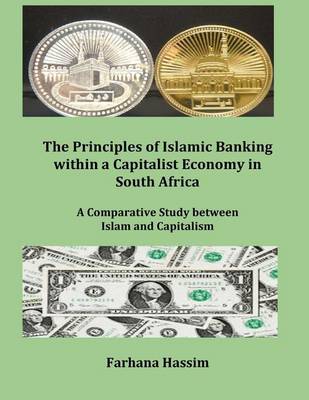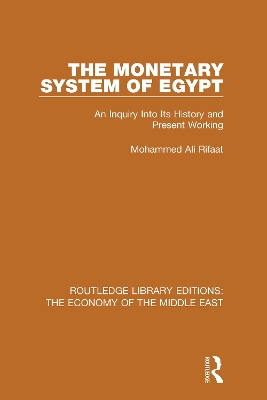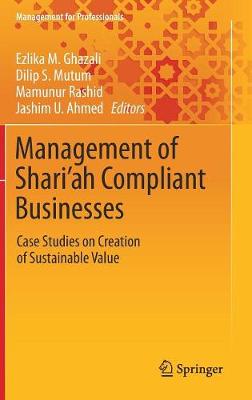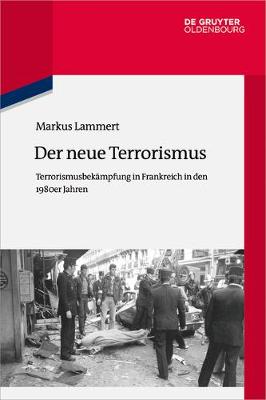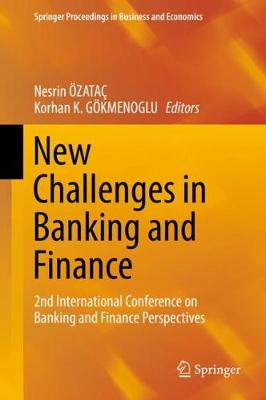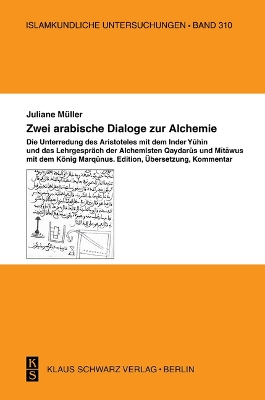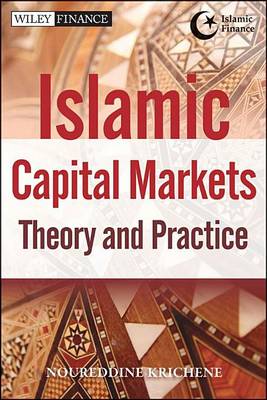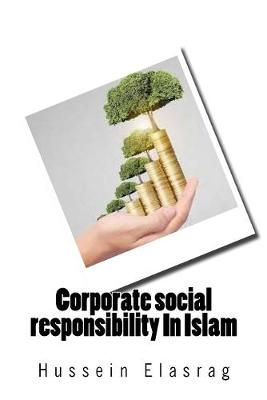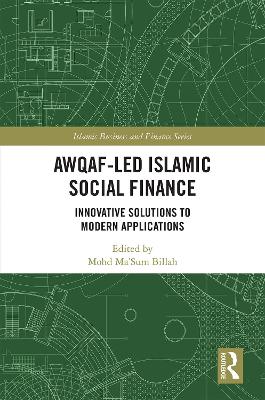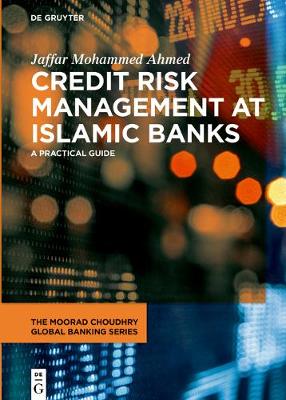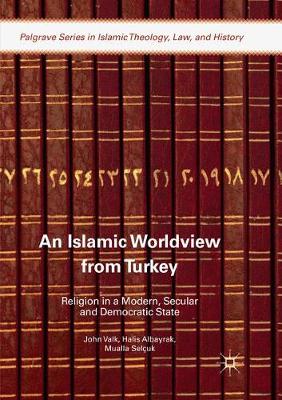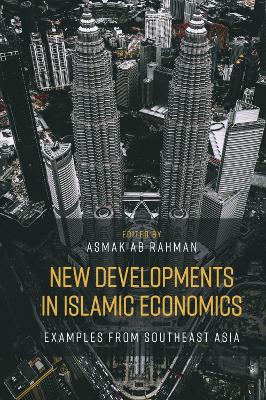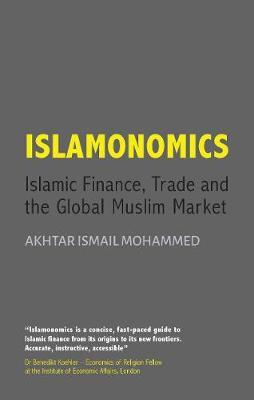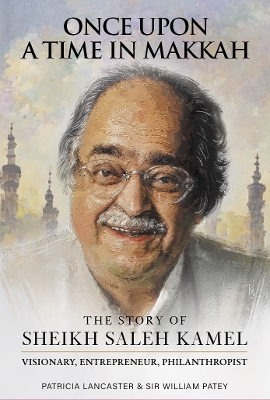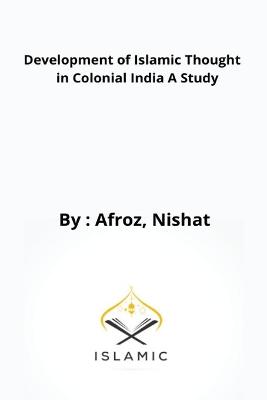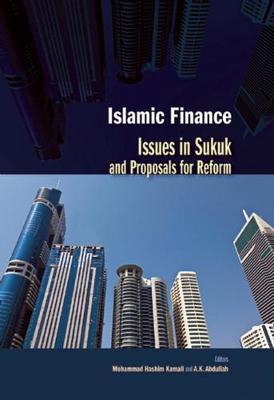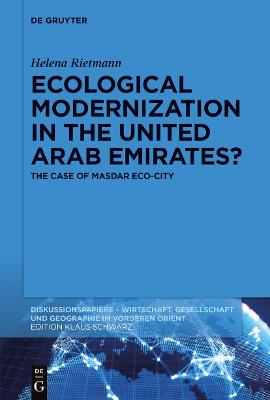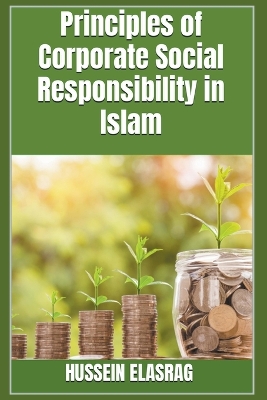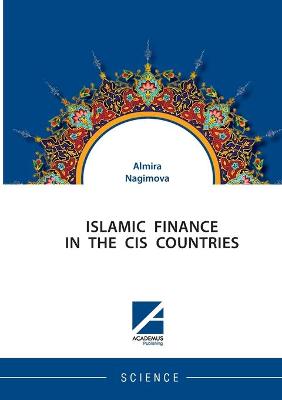This detailed study of the Egyptian economic and financial development, originally published in 1935, attempts to both present a clear understanding of the environmental factors of the monetary institutions and to trace the influence which these institutions have had upon the country’s economic organisation. First published in 1935.
Management of Shari'ah Compliant Businesses (Management for Professionals)
Muslim consumers represent an untapped and viable market segment, but to date there has been very little research on catering to their needs or running and managing Islamic businesses. Innovations in Islamic business, interest in the use of Sukuk (Islamic bonds) to finance major projects, pressures on Islamic banks to reduce the financing gap in society, and the need to understand Muslim consumers, require a deeper grasp of the issues and opportunities involved, which are quite unique. In simila...
New Challenges in Banking and Finance (Springer Proceedings in Business and Economics)
This volume presents current developments in the fields of banking and finance from an international perspective. Featuring contributions from the 2nd International Conference on Banking and Finance Perspectives (ICBFP), this volume serves as a valuable forum for discussing current issues and trends in the banking and financial sectors, especially in light of the global economic challenges triggered by financial institutions. Using the latest theoretical models, new perspectives are brought to...
Zwei Arabische Dialoge Zur Alchemie (Islamkundliche Untersuchungen, #310)
by Juliane Muller
A comprehensive look at the essentials of Islamic capital markets Bringing together theoretical and practical aspects of capital markets, Islamic Capital Markets offers readers a comprehensive insight into the institutions, instruments, and regulatory framework that comprise Islamic capital markets. Also exploring ideas about money, central banking, and economic growth theory and their role in Islamic capital markets, the book provides students and practitioners with essential information about...
Awqaf-led Islamic Social Finance (Islamic Business and Finance)
This book provides an authoritative and comprehensive overview of Waqf (endowment), addressing specific issues, models, solutions, structures and practices. As Islamic finance has gained in significance, so too has the institution of Waqf, working towards creating an enterprising and an entrepreneurial community across the globe, in order to meet the underlying objectives of the sustainable development goals (SDGs) by targeting the low-income group in particular. The book analyses the historic...
Interviews with the professionals driving the rapid global growth of Islamic finance Though the modern Islamic finance system has existed for more than forty years, its size and influence in the banking industry has expanded massively in just the last decade. This book looks at Islamic finance from the perspective of the experts shaping the industry, including some of the founders of the first Islamic banks-Haj Saeed Lootah, His Royal Highness Prince Mohamed Al Faisal Al Saud, and Sheikh Saleh...
Credit Risk Management at Islamic Banks (The Moorad Choudhry Global Banking)
by Jaffar Mohammed Ahmed
Islamic banks nature of business is asset-based. This nature helped Islamic banks during the recent crisis of 2008 to, albeit relatively, reduce their exposures to the crisis. Islamic Banks, however, still face many challenges. Credit risk management for Islamic banks is complicated by peculiarities the conventional banks do not encounter, such as the prohibition of charging any accrued interest or imposing any penalty. Clients of Islamic Banks may take advantage by delaying payment if the Islam...
An Islamic Worldview from Turkey (Palgrave Series in Islamic Theology, Law, and History)
by John Valk, Halis Albayrak, and Mualla Selcuk
This book is a journey into the heart of an Islamic worldview. It asks challenging questions of far-reaching consequence, addressing matters such as the Qur'an and revelation; rituals and symbols embraced; nature of God, of humans, and of our knowing; dignity of the human, sacredness of life, and more. It precludes easy, prescribed answers, preferring instead thoughtful reflection on two basic questions: What does it mean to love God? What does it mean to be a good person? Carefully crafted res...
New Developments in Islamic Economics
New Developments in Islamic Economics: Examples from Southeast Asia investigates the latest developments in a vibrant and fast-moving area of practical financial and economic study. Primarily focused on Malaysian contexts, while also presenting perspectives from Indonesia and Thailand, this book examines the Asian nations leading the world in the application of Islamic finance. Case studies analyse and discuss new and emerging issues in Islamic economics, including microtakaful, waqf, social fin...
The Islamic Finance industry is valued at US$3 trillion and finances deals in London, New York, Singapore, Shanghai, Dubai, Geneva, and Kuala Lumpur. Yet where does Islamic Finance come from? What has it accomplished? Why did it disappear? And why has it returned to prominence once again? In answering these questions, Mohammed illuminates the history of Islamic trade, from the shores of the Mediterranean to the strategic maritime choke points of South East Asia, spanning the 7th century to the...
Development of Islamic Thought in Colonial India A Study
by Afroz Nishat
This collection of essays brings together leading scholars and practitioners to discuss contemporary issues in the rapidly expanding "sukuk market," and frankly debates the challenges facing it since the 2008 financial crisis.Highly recommended for practitioners, scholars, and students of Islamic finance.Professor Mohammad Hashim Kamali is the founding chairman and CEO of the International Institute of Advanced Islamic Studies (IAIS) in Malaysia, and is a leading authority in Islamic jurispruden...
Ecological Modernization in the United Arab Emirates? (Diskussionspapiere)
by Helena Rietmann
In 2006, the United Arab Emirates initiated the Masdar City project, which was a pre-planned eco-city concentrating on the development and promotion of renewable energy, water and waste management, sustainable building, transportation, and material efficiency. It was the flagship project of what the government considered to be a widespread environmental reform process. This study examines the Masdar City project applying the analytical framework of "ecological modernization" with the help of fiv...
Handbook of Research on Theory and Practice of Global Islamic Finance, VOL 1
